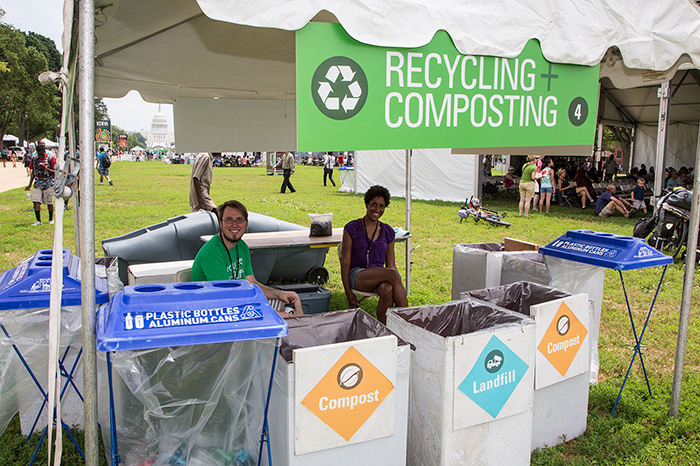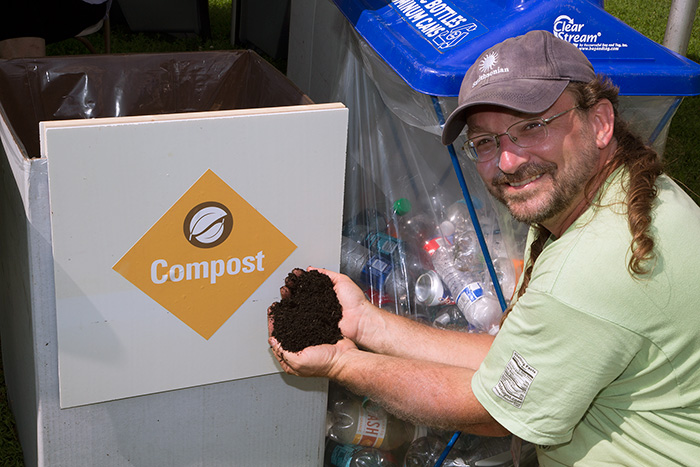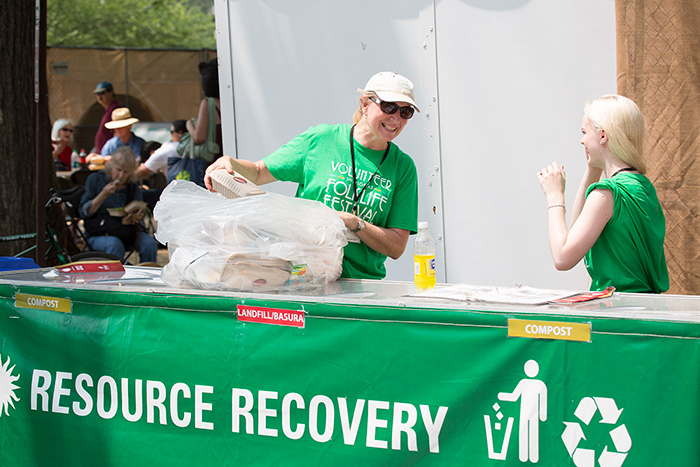Yes, You Can Compost a Spoon! Sustainability at the Folklife Festival

What do you remember after you leave a large festival at closing time? The sights, sounds, and smells? Or all of the Styrofoam cups and containers on the ground?
The aftermath of the Smithsonian Folklife Festival tells a different story: that large public events can be environmentally sustainable. Instead of viewing trash as undesirable waste to be left in a dumpster, we encourage thinking of trash as a recoverable resource that can be redirected and reused. The Festival is the greenest event on the National Mall and sets an example for large events all over the country.
Over the past two years, the Festival has recycled or composted nearly 80 tons of material, achieving a 93 percent diversion rate. This means that only 7 percent of trash from the Festival was sent to the landfill. All other materials were recycled or turned into compost, which can be added to soil to help plants grow.
The success of our sustainability program combines the efforts of Festival food vendors with volunteers and staff. Archaeologist Eric Hollinger at the National Museum of Natural History studies and advises our sustainability efforts and is passionate about recycling. According to Eric, participation by vendors and volunteers shows everyone that recycling is simple and can be done by anyone.

Did you know that plastic cups, food containers, and silverware can be produced from corn starch and turned into compost after they are used? The Festival has led the way in incorporating environmentally friendly food containers into large-scale events. Styrofoam cannot be recycled in most regions, and efforts to ban the use of Styrofoam food and beverage containers are occurring across the country; in Washington, D.C., Styrofoam containers were banned on January 1, 2016.
All of the food containers and silverware used at the Festival must be 100 percent compostable, and we provide guidance and training for food vendors on purchasing the appropriate products and incorporating sustainable practices into their kitchen stations, such as how to separate organic compostable materials from recycling and what needs to be sent to the landfill.
Our Festival volunteers also play crucial roles in the success of the sustainability initiatives. They maintain the resource recovery stations and guide visitors in placing their trash into the proper containers: recycling, compost, and landfill-bound trash. The Festival also provides educational opportunities for visitors to learn more about sustainability and why it matters. They were often surprised to learn that things they were about to throw away can be turned into new products!

Our goal for the 2016 Festival is to surpass previous years’ efforts and send even less material to the landfill. We also aim to refine our resource recovery stations to find the most efficient ways for visitors to recycle or compost their cups, silverware, and food containers.
Are you interested in learning more about sustainability issues and being a part of the Festival? The Festival’s sustainability program would not be possible without our committed and passionate volunteers. If you would like to join us as a volunteer for the 2016 Festival, please sign up online.
Leah Bush is an intern with the Smithsonian Folklife Festival and the Sounds of California program. She recently completed a master’s degree in American studies with a graduate certificate in museums and material culture from the University of Maryland, College Park.

